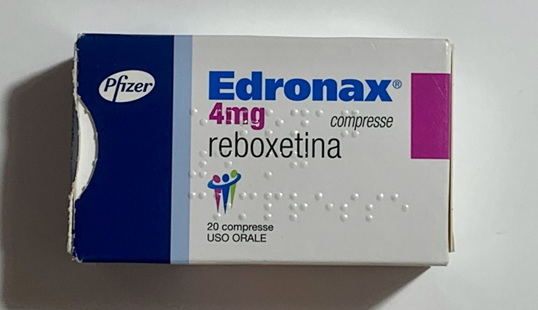Reboxetine is a noradrenaline reuptake inhibitor (NRI). It is used as a non-stimulant alternative in the treatment of ADHD and as an augmentation agent in the treatment of depression. It has also shown promise in the treatment of panic disorder.
Atomoxetine (a chemical cousin of reboxetine) is pretty much the same, though it also has a slight affinity for the serotonin transporter (SERT).

Personal experience
After having experimented with pure serotonin enhancement (escitalopram) and pure dopamine enhancement (modafinil), I wanted to find out what pure noradrenaline enhancement felt like. I started out with only 2mg of reboxetine.
Initially, there was euphoria, a massive increase in energy levels, and the most vivid dreams of my life. Every night felt like a novel’s worth of dreams. My heart rate shot up by about twenty points. After a week or so, my energy, mood, REM sleep, and heart rate had decreased but were still well above baseline.
After 2 weeks, I doubled the dose. On 4 mg, my concentration became unpleasantly strong, unlike everything I have ever experienced (Disclaimer: I do not have ADHD and in the DIVA 2.0 test I am well below the cut-off for ADHD). For example, one day I was watching a movie. During the movie I got hungry. I grabbed some food and put it next to me. Before I knew it, the movie was over and I had not touched my food, simply because I was so focused on the movie, which was not even particularly interesting.

While I liked being on reboxetine, it was also weird. I was neither thinking nor was I “present”. I was stuck in the limbo of being lost in thought and not being lost in thought. Quite hard to explain. My mind was much more quiet than usual and my creativity was gone.
Furthermore, there were a number of worrying side effects. I could not manage to sleep for more than 6 hours per night, my heart rate variability (HRV) halved, my blood pressure was around 140/80 (vs. 120/60), my heart rate was constantly between 70-80 (vs. 60), I was constipated, my dreams were ultra-vivid, and my ejaculation was delayed.
However, I wanted to give it more time, so, instead of stopping, I tapered it down to 2mg, which I split into two equal doses taken 6h apart. I continued being on this dose for a couple of more weeks. Despite the side effects, reboxetine was quite a pleasant experience overall and I can see its value for a subset of people with depression and ADHD.
How it works
Reboxetine is a pure noradrenaline reuptake inhibitor (NRI). It is a more potent and “cleaner” version of atomoxetine, which is usually the non-stimulant treatment of choice for ADHD.
Because noradrenaline reuptake inhibitors leave the mesolimbic dopamine system untouched, they have no addiction or abuse potential. However, NET inhibitors affect the mesocortical dopamine system because in the prefrontal cortices, most of the dopamine reuptake occurs via NET (as prefrontal cortex DAT expression is low). These dopamine systems are discussed in more detail here.
However, because noradrenaline stimulates the whole central nervous system by way of increasing noradrenaline, reboxetine also elevates levels of dopamine and serotonin to some extent, though indirectly. When it comes to modulating neurotransmitters, it is impossible to affect a single neurotransmitter system without having 2nd and 3rd-order consequences on the others.
Paradoxically, while reboxetine tends to increase anxiety in the beginning, NRIs such as reboxetine or bupropion tend to reduce symptoms of panic and anxiety over the long term, presumably by modulating the activity of certain brain regions involved in the stress response. Therefore, they are sometimes prescribed in the treatment of panic disorder (even though initially they tend to worsen anxiety).
Alternatives to NRIs are the noradrenergic tricyclics desipramine and nortriptyline. I have tried neither of them.
Subscribe to the Desmolysium newsletter and get access to three exclusive articles!
Usefulness as an augmentation agent
One major drawback of using antidepressant monotherapy (a single-drug regimen) is that relative activities of the different neurotransmitters cannot be “customized”. Combining antidepressants targeting different neurotransmitter systems allows for customizing neurotransmitters a little like customizing EQ settings on a graphic equalizer.

So, in theory, neurotransmitter activities can be adapted as one wishes. For example, instead of relying on duloxetine (a SNRI with SERT:NET ratio of 4:1 SERT:NET), one could combine an individualized dose of escitalopram with an individualized dose of reboxetine, adjusting the relevant strength of individual neurotransmitters according to a patient’s needs, tolerance, and preferences.
Therefore, reboxetine is sometimes prescribed as an augmentation agent to serotonergic antidepressants.
Interactions
Reboxetine is quite free of pharmacodynamic interactions.
Random observation. Whenever I ate dark chocolate while being on reboxetine, my heart rate rose to around 90 bpm and my systolic RR to about 150 mmHg. Given that I did not react adversely to caffeine, I suspect this was due to theobromine (dark chocolate contains theobromine/caffeine in a ratio of 10:1).
As far as I know, no one has reported on this interaction before. I have only found a single Reddit comment, where a user mentioned that he/she quit atomoxetine because of his/her inability to consume dark chocolate.
Other experience reports
For a general discussion of stimulants, and links to accounts of stimulants I have experimented with, click here.
For a full list of experience reports, including non-stimulants, click here.
Sources & further information
- Anecdotes: Drugs.com – Atomoxetine
- Scientific review: The Promises and Pitfalls of Reboxetine
- Scientific review: Reboxetine in clinical practice: a review
Disclaimer
The content available on this website is based on the author’s individual research, opinions, and personal experiences. It is intended solely for informational and entertainment purposes and does not constitute medical advice. The author does not endorse the use of supplements, pharmaceutical drugs, or hormones without the direct oversight of a qualified physician. People should never disregard professional medical advice or delay in seeking it because of something they have read on the internet.
